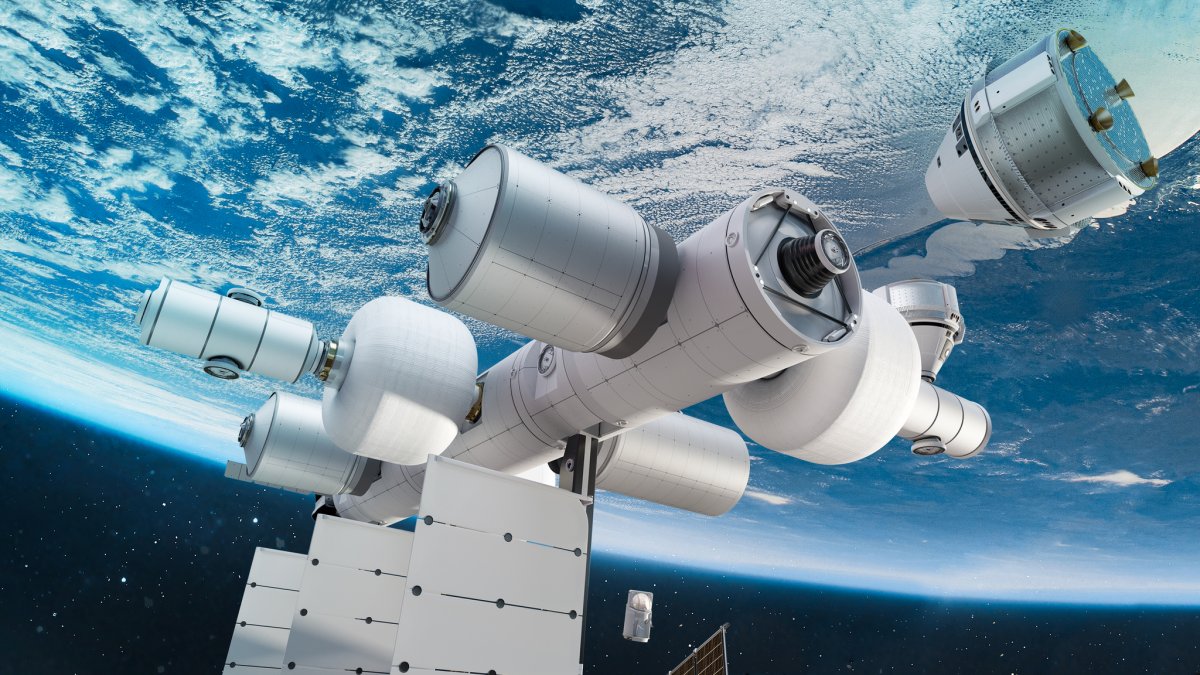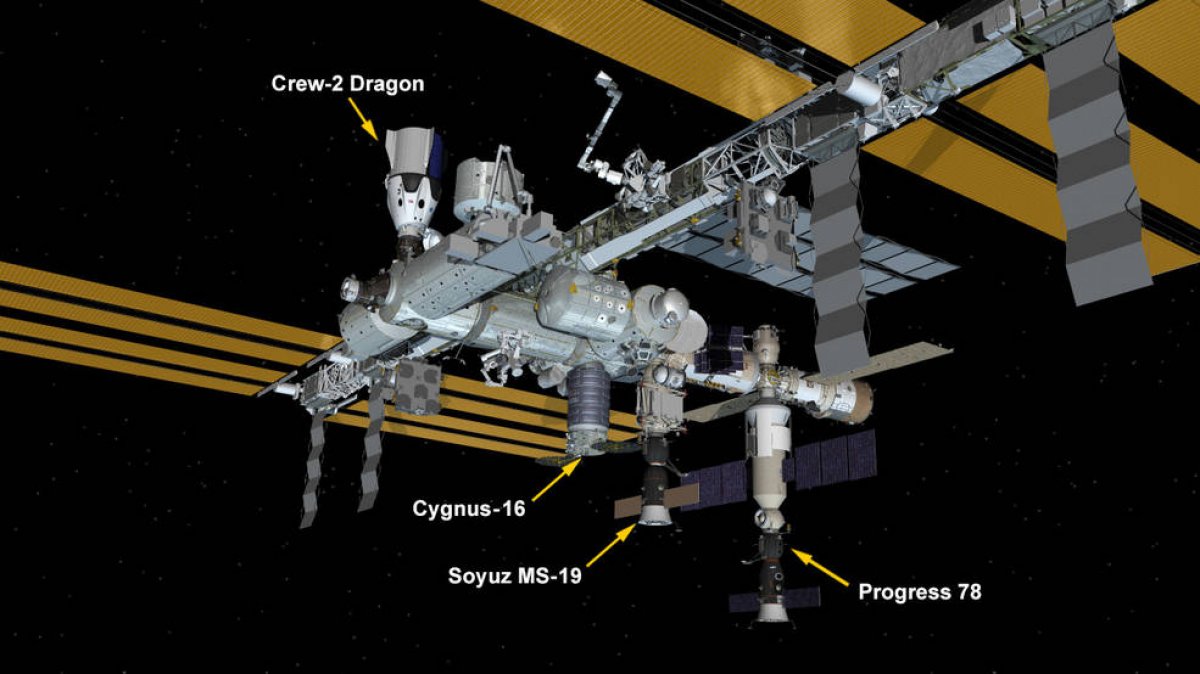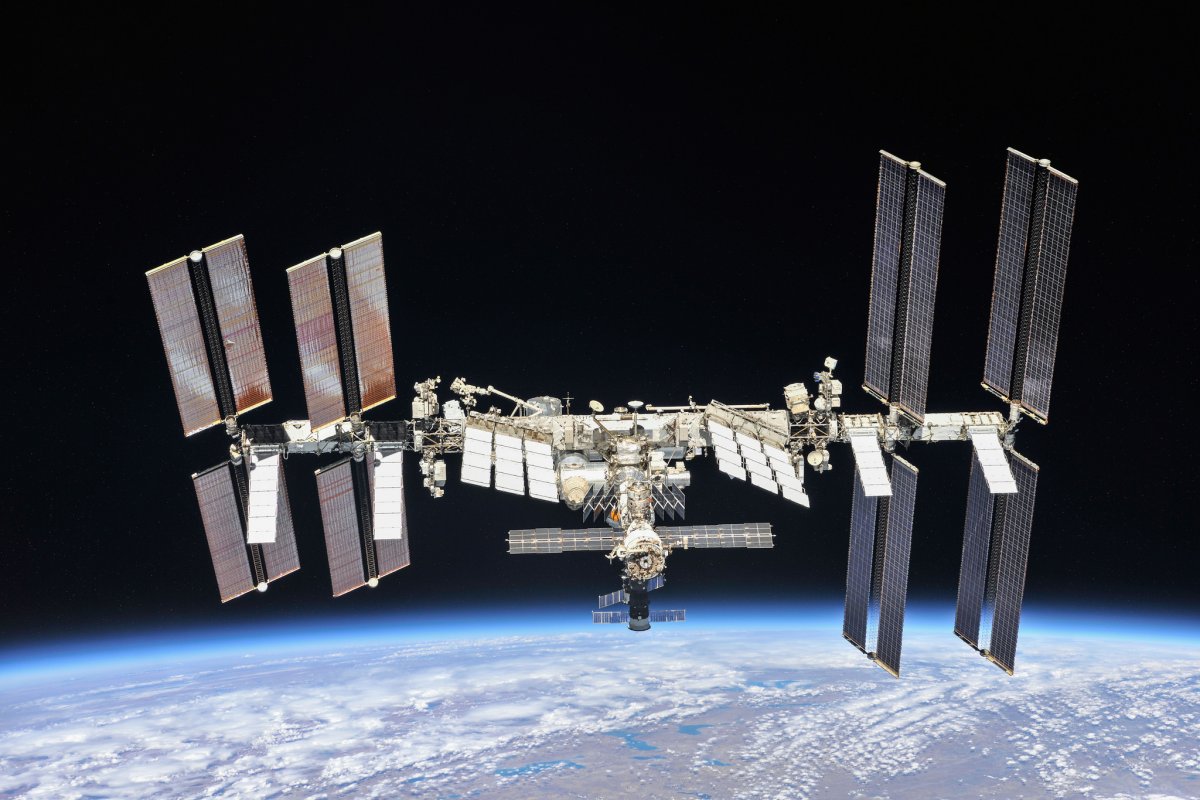Jeff Bezos' aerospace manufacturing group Blue Origin will be producing a commercial off-Earth outpost called Orbital Reef, it was announced on Monday.
The company will team with Sierra Space with backing from Boeing, Redwire Space, Genesis Engineering Solutions, and Arizona State University, to provide a station that will effectively be a commercial successor to the International Space Station (ISS), up and running by 2030.
"The station will open the next chapter of human space exploration and development by facilitating the growth of a vibrant ecosystem and business model for the future," Blue Origin said in a press release. "Designed to open multiple new markets in space, Orbital Reef will provide anyone with the opportunity to establish their own address on orbit.
"The station will start operating in the second half of this decade."

In terms of size, the Orbital Reef will initially have a volume of 830 cubic meters, compared to the ISS' 916 cubic meters. That means a starting crew of ten, whereas the ISS currently is crewed by 11 people.
Bezos' station will continue to grow over time, with more modules gradually added. According to the Orbital Reef website, it will eventually offer commercial businesses the opportunity to rent real estate in space.
This new station will initially act as a complement to ISS, which has been in orbit around the Earth since 1998. Eventually, Blue Origin says it will build upon the ISS' legacy of space exploration.
"This is exciting for us because this project does not duplicate the immensely successful and enduring ISS, but rather goes a step further to fulfill a unique position in low Earth orbit where it can serve a diverse array of companies and host non-specialist crews," Boeing VP and program manager for the International Space Station, John Mulholland, said.
"It calls for the same kind of expertise we used to first design and then build the International Space Station and the same skills we employ every day to operate, maintain and sustain the ISS."
The key difference between ISS and its eventual successor is that while the older space station is manned by a rotating crew of trained astronauts from agencies like NASA, Japan Aerospace Exploration Agency (JAXA), and the European Space Agency (ESA), with the occasional civilian, the occupants of Orbital Reef will be primarily private citizens, assisted by an onboard crew.

The journey to the ISS involves traveling aboard a space module, such as Space-X's Dragon craft which recently carried the Inspiration 4 crew into a low-earth orbit, or the Soyuz crafts first developed for the Soviet space program. These modules also carry important supplies and equipment to the ISS.
For the Orbital Reef, these tasks will be conducted by Blue Origin's heavy-lift reusable New Glenn launch system. Sierra Space will also provide their Dream Chaser spaceplane for crew and cargo transportation. The spaceplane, currently in development, is capable of landing on runways worldwide and will begin making trips to the ISS next year.
One of the most fascinating aspects of the ISS during its operations has been the frequent spacewalks that occur when crew exit the station and conduct work on its exterior, separated from the near-vacuum of space by little more than a thin screen of plastic.
The Orbital Reef will also offer its private citizen occupants the chance to engage in forays outside the space station. The process will be different than it is on the ISS.
For Orbital Reef, Genesis Engineering Solutions will be providing a single-person spacecraft that will allow for routine operations to be conducted, as well as facilitating tourist excursions outside the station.
"The Single-Person Spacecraft will transform spacewalking," Program Manager for Genesis Engineering Solutions, Brand Griffin said in a press release. "Space workers and tourists alike will have safe, comfortable, and quick access outside Orbital Reef."
Rather than conducting spacewalks in bulky space suits, the single-person craft will allow trips outside the station in everyday attire, Griffin said. The craft will have automated guidance, and robotic arms to perform repairs and installations outside the station.
One of the key functions of the ISS during its 23 years of operations has been to conduct scientific investigations into the effects of microgravity on various systems. This includes technology and living organisms.
One of Blue Origins' partners, Boeing, will be providing a dedicated science module for the Orbital Reef station so that it may also assist in research into microgravity.
The guidance and ethical aspects of these experiments will be developed by over a dozen universities, led by Arizona State University and including Oxford University, Stanford University, and the International Space University.
"For over 60 years, NASA and other space agencies have developed orbital space flight and space habitation, setting us up for commercial business to take off in this decade," Senior Vice President of Advanced Development Programs for Blue Origin, Brent Sherwood, said in a statement.
"We will expand access, lower the cost, and provide all the services and amenities needed to normalize space flight. A vibrant business ecosystem will grow in low Earth orbit, generating new discoveries, new products, new entertainments, and global awareness."

Uncommon Knowledge
Newsweek is committed to challenging conventional wisdom and finding connections in the search for common ground.
Newsweek is committed to challenging conventional wisdom and finding connections in the search for common ground.
About the writer
To read how Newsweek uses AI as a newsroom tool, Click here.








